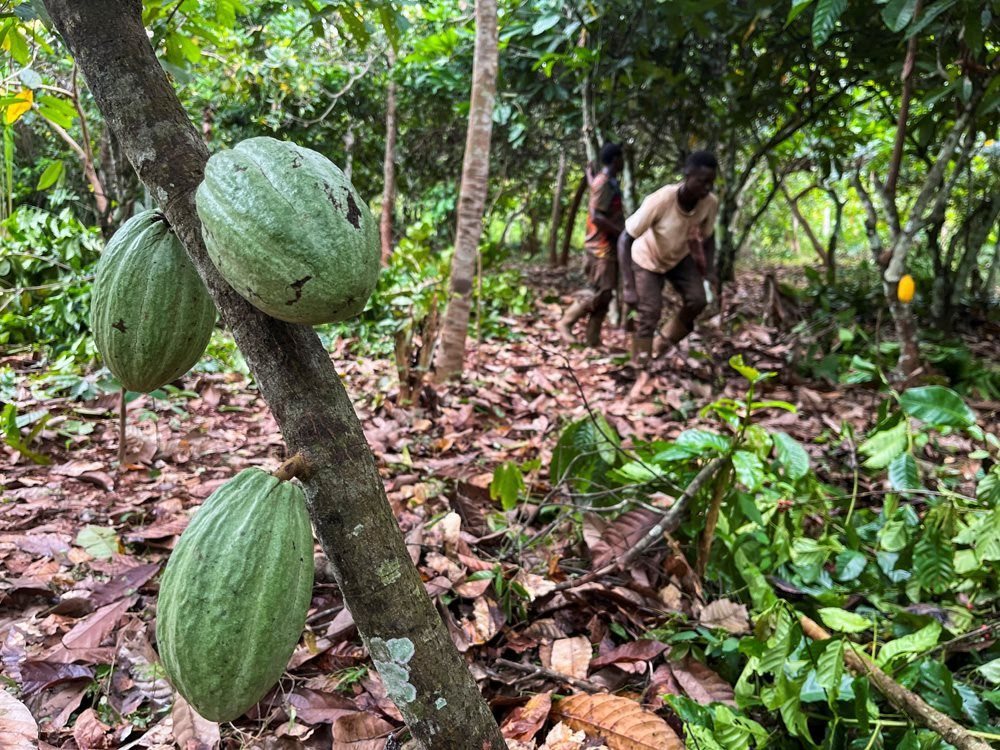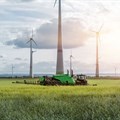The European Union is not planning to delay a new law to crack down on the import of commodities linked to deforestation, its environment commissioner said, despite some governments urging Brussels to postpone the landmark rules.

Farmers work at a cocoa farm in Daloa, Ivory Coast, 3 October 2023. Reuters/Ange Aboa/File Photo
The new EU law, set to come into force at the end of 2024, will require companies to prove their goods were not grown on deforested land.
"At this moment we are working to ensure that legislation is operational from the beginning of (2025)," Virginijus Sinkevicius, European Environment Commissioner, told Reuters during a visit to a cocoa-producing cooperative in Ivory Coast on Sunday to check on progress towards compliance with the law.
Some 20 out of the EU’s 27 member countries asked Brussels in March to delay the anti-deforestation law and exempt producers in countries deemed to have a low risk of deforestation.
They argued that, in its current form, the policy would harm European farmers, who have been protesting for months over complaints including excessive EU regulations.
Sinkevicius said the Commission would respond to the EU countries’ concerns, but that the deforestation policy was agreed in late 2022 and producers and governments have had nearly two years to prepare for its launch.
"This legislation is not coming out of nowhere," he said.
For producer countries outside the EU, including the world’s top cocoa producers Ivory Coast and Ghana, at stake is smooth access to the main market at a time when prices of the chocolate ingredient have already soared to record highs.
Lerato Molefi & Dalit Anstey 3 Apr 2023
Preparation
Ivory Coast in March 2023 launched a national sustainable cocoa strategy (SNCD), aimed at falling into line with the EU requirements.
But the pace of progress in the West African country worried the EU, officials in Brussels and Abidjan told Reuters in September, speaking on condition of anonymity.
Sinkevicius said he thought Ivory Coast was now "very well-prepared. You can see that they are very, very well-advanced."
Other countries have different levels of preparedness, he added. "It very much depends on the government, on the structure of the farms, on the production."
Sinkevicius also said the EU would not fully cover the costs of bringing production systems into compliance.
"Those costs...they will be shared by the operators who are importing into the EU, and they will be shared also partly by the EU budget," he said.
He said the bloc had launched a budget support scheme worth €50m ($54m) in Ivory Coast, as well as other programmes worth €12m and €2.5m, respectively.
He said the EU was in the process of finalising a reforestation loan for Ivory Coast worth 150 million euros.
He is scheduled to visit neighbouring Ghana on Monday.
($1 = €0.9237)




































